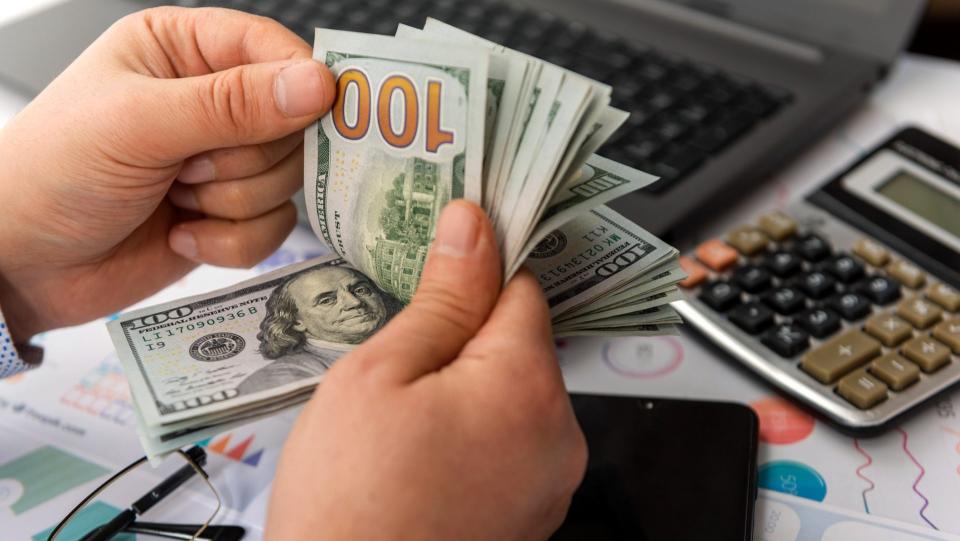5 Ways To Cash In on Your Spare Change

You’ve been collecting spare change for quite some time now, and your piggy bank is about to bust. The time has come to empty it, but first, you want to decide how to put your savings to good use.
See: 4 Reasons You Should Cancel Amazon Prime
Learn: How To Build Your Savings From Scratch
After spending months — or even years — collecting these coins, you want to do something meaningful with the money. Here are five ideas to consider as the best use for your spare change.
Save for Holiday Gifts
While the holidays might be the farthest thing from your mind right now, Holly Andrews, loans manager and managing director at KIS Finance, a financial brokerage firm based in the United Kingdom, suggested using your spare change to start saving for this expensive season.
“Putting away your spare change right from the start of the year means you have the maximum amount of time to save for the holidays, and you’ll probably be surprised at just how much this will add up to over 10 or 11 months,” she said. “It may not cover everything, but it will certainly give you a very big head start, and you won’t have to worry about how you’ll afford everything as the holidays get closer.”
Imagine not having to scramble to cover all those holiday expenses this year, because you’ve already planned ahead. Enjoy the feeling!
Add It to Your Debt Repayments
If you’re trying to pay off credit card balances, Andrews said anything you can contribute to the cause will be a great help.
“Keep adding your spare change to a jar and every time you reach $10 or $20 dollars, put it in your bank account and add it to your next credit card payment,” she said. “It might not seem like much at the time, but every dollar that you can add towards debt repayment will benefit you in the long-run.”
In no time at all, you might make a serious dent in your debt repayments.
Take Our Poll: Who Has Given You the Best Money Advice You Have Ever Received?
Start an Emergency Fund
If you don’t already have an emergency fund, your spare change is a great starting point, said Alissa Krasner Maizes, financial planner and founder of the investment advising firm, Amplify My Wealth.
“In a separate account, save and set aside an emergency fund that consists of ideally at least three to six months of your monthly expenses from your anticipated budget,” she said. “This money should be in a high yield savings or money market account and only used for any unanticipated emergencies that require you to access this, such as a change in living circumstances, job loss, divorce or disability.”
You might be surprised at how much you can save up for a rainy day.
Invest It
If you already have an emergency fund and don’t have any high-interest debt — like a balance on your credit card — Maizes recommended investing your spare change.
“Some investment options to consider are directing the extra amount to tax-advantaged accounts such as retirement, health, education savings or a non-qualified brokerage account,” she said. “Not all investment account options are the same, so do your due diligence to determine the best vehicle for your investments and choose a low-cost option such as a mutual fund or ETF,” she said.
When you find the right investment option for your spare change, just sit back and watch how much those pennies, nickels, dimes and quarters can turn into.
Use It To Teach Your Kids
If you have kids, you’re always looking for ways to teach them valuable life lessons. Ahren A. Tiller, Esq., founder and supervising attorney at the Bankruptcy Law Center based in Southern California, said he’s cashed in his spare change for something that far exceeds its monetary value.
“I’ve used my spare change as my coffee fund, as work lunches on the run, used it at the laundromat and even used it to buy a scratch-off lotto ticket,” he said. “But turning my spare change savings plan into a learning moment for my kids is the best one.”
Tiller said using his spare change in this manner has allowed him to introduce money-saving to his children in a memorable and fun way. “By rewarding my kids an additional allowance — from my spare change — for going above and beyond on their household chores and homework, they’ve learned how money works — that they need to work for it to earn it,” he said.
You can’t put a price tag on the importance of teaching your children the value of a dollar, so this could be a smart choice for any parent.
More From GOBankingRates
This article originally appeared on GOBankingRates.com: 5 Ways To Cash In on Your Spare Change
